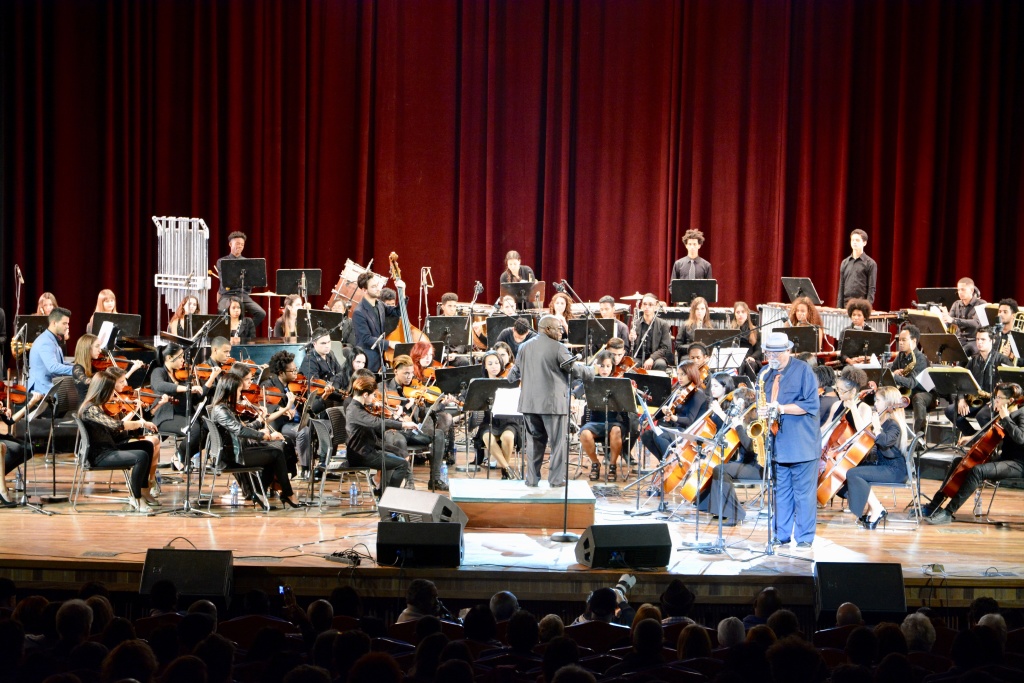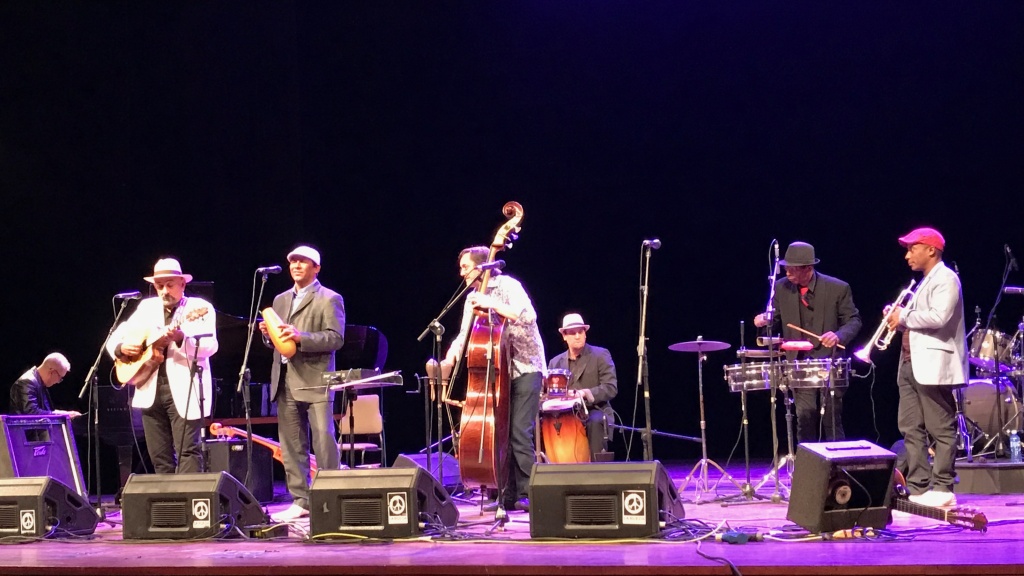Musical diplomacy rules the day at a jazz festival in Cuba


HAVANA — Every year, the International Jazz Plaza Festival brings musicians and fans from all over the world to Havana for an intense week of performances across the Caribbean city. The festival includes a wide range of artists, some of whom are here this year for the first time.
On a cool winter evening at the Casa de la Cultura de Plaza, the group NG La Banda is playing Dizzy Gillespie’s “A Night in Tunisia.” NG La Banda created one of Cuba’s most popular dance styles, known as timba. The band leader, flutist Jose Luis Cortés, used to play with Cuba’s super jazz group, Irakere, and the iconic salsa band, Los Van Van.
At the annual festival, jazz and Cuban music converge to create a potent mix unlike anywhere else. It was here, at this venue in 1980, where Cuban jazz singer Bobby Carcassés founded the festival, encouraging collaborations between jazz and Cuban artists.

At the festival’s home, the historic Hotel Nacional, New York-based saxophonist Irwin Hall says he’s playing here with singer Dee Dee Bridgewater for the first time.
“The people here are very giving and very friendly,” Hall says. “We’ve had a great time. We got to see some local musicians play and be able to play with them — and man, cats here are really [good].”
It wasn’t always easy for American musicians to come to Cuba. But things began to loosen up at the end of 2014 when President Obama announced that the U.S. would resume diplomatic relations with Cuba. The Trump administration, however, reversed some of the Obama policies, but it’s still possible for individuals to come to Cuba.
“This is smoke-and-mirrors from the Trump administration,” says writer Ned Sublette, author of “Cuba and Its Music.” “They got rid of one thing, which was individual [travel], which was the way the Obama administration put Cuba travel on the honor system. Well, you can’t do that, you’re not supposed to come for sun-and-beach tourism, but you can come to Cuba. For any musician coming to Cuba, its ‘professional research.’”
Tenor saxophonist Joe Lovano was another of the Americans who came here this year. He played a set of ballads with the renown Amadeo Roldán Conservatory Symphony Orchestra. Lovano first played at the festival in 1986, with Charlie Haden’s Liberation Music Orchestra. In 2003, Lovano returned with his own band. He says Cuban music and jazz have been together for decades:
“That’s because of the influences of the amazing masters that came to the States in the ’30s and ’40s from Cuba, and did collaborations with Dizzy Gillespie and Charlie Parker. There was some amazing music that was put together with the spirit of the life of the people.”
The Cuban government is even welcoming expatriate musicians. Cuban bassist Yunior Terry is playing at the festival for the first time, performing with his older brother’s group, the Yosvany Terry Quintet. The brothers left Cuba for New York 20 years ago.

Yunior says in addition to playing at a couple of the festival’s major venues, this return to Havana is all the more meaningful because he and Yosvany performed at their alma mater, the National School of the Arts:
“We’ve been having a blast, sharing our experiences and bringing a little bit of the knowledge we have acquired through all these years. And it’s always so great to give back and see so many young people so hungry for information. They heard us on record for many many years, but they’ve never seen us play before live, so this is a great opportunity and we’re so happy to be here doing this.”
The festival is organized by the National Center of Popular Music. Cuban dance music has been a key component of the festival since the beginning. One of this year’s revelations was the 40-year old singer Alain Pérez and his Orchestra.
Pérez, who’s played bass with major music figures, including pianist Chucho Valdés, singer Celia Cruz and flamenco giant Paco de Lucia, returned to Cuba a couple years ago from Spain and launched his solo career. Pérez says all the years he spent abroad have enriched his approach to music-making:
“It’s a different way of feeling, a much more open way to express — more sincere, more natural, closer to the public. But very Cuban, with all the jazz and folk music influences.”
Ned Sublette first came here in 1990 and organizes trips for his Cuban music seminars on the island. He says it was quite an intense festival back then:
“It was overwhelming! And I had kind of forgotten what this kind of musical orgy feels like, even though I go to a lot of festivals. This is like my Spotify playlist has come to life! Coming to Cuba and immersing yourself in the music is an experience that transforms you.”
